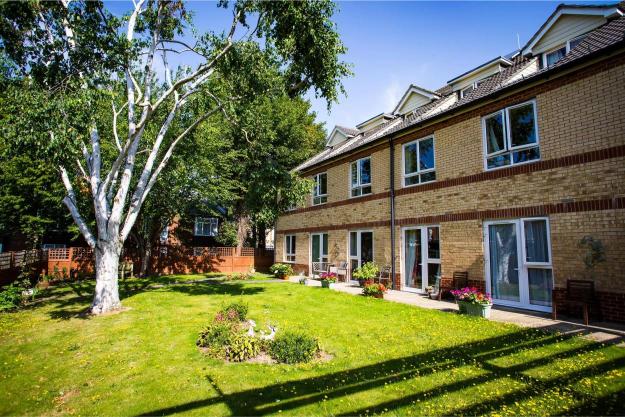When Should Someone With Dementia Go Into a Care Home?

Supporting a loved one living with dementia is a journey filled with both rewarding and challenging moments. Many families wish to provide care at home for as long as possible. However, there may come a point where professional support in a care home setting becomes the most practical and compassionate option. Knowing when that time has arrived is often one of the hardest decisions families face.
Below are the key signs that may indicate when a move into a care home is appropriate, what benefits specialist dementia care can provide, and how the right environment can enhance both safety and quality of life.
Recognising When More Support Is Needed
Dementia affects people in different ways, but as the condition progresses, the level of support required usually increases. Families often begin to ask whether home-based care is still enough when daily life becomes unsafe or unmanageable.
There are a few common indicators that can suggest someone with dementia may now need the additional structure and support that a care home with dementia expertise can offer.
Some families notice increasing difficulty with personal care. Tasks such as washing, dressing, and continence management can become more complex over time. If these needs are becoming too demanding for family carers alone, professional dementia-trained carers may be best placed to provide the right assistance.


Another important factor is medication. Dementia is often accompanied by other health conditions that require regular treatment or monitoring. If managing medication safely at home is becoming difficult, nursing or residential care environments can provide reassurance that it is always administered correctly.
Nutrition can also play a considerable role. People living with dementia may forget meals, lose interest in eating, or experience swallowing difficulties. A residential care setting ensures that nutritious meals are prepared and individual dietary needs are fully supported.
Safety and Supervision
For many families, safety is the deciding factor in choosing to move a loved one into a care home. Increased wandering, restlessness during the night, and forgetfulness with appliances or doors can significantly raise the risk of accidents.
In a care home, safety is built into the environment. Secure gardens, alarmed exit points, and staff available at all hours reduce risk while still allowing residents a sense of freedom. Families gain peace of mind knowing their loved one is in a safe setting with professionals nearby if needed.
Frequent falls or difficulties with mobility can also point towards the need for care home support. Dedicated staff are trained to assist with movement safely, preventing injuries and supporting independence wherever possible.
Emotional and Social Considerations
Dementia can often lead to feelings of isolation, both for the person diagnosed and for their carers. When someone struggles to leave their home or loses confidence in social situations, opportunities for stimulation and companionship can be limited.
Care homes with specialist dementia programmes provide structured activities designed to boost memory, engage the senses, and encourage social interaction. Group sessions, one-to-one activities, and community events mean residents continue to experience meaningful connections every day.
Families may also notice the growing emotional strain of providing care. It is not uncommon for carers to feel exhausted, overwhelmed, or even experience declining health themselves. Choosing a care home does not mean stepping away from caring; rather it allows families to focus on spending quality time together without the constant pressure of day-to-day responsibilities.
Balancing Independence and Support
A move to a care home does not mean the loss of independence. The best dementia care homes, such as Maples Care Home in Bexleyheath, focus on creating an environment where residents maintain as much autonomy as possible while receiving the right support at the right time.
Residents are encouraged to remain involved in the choices that matter to them, from participating in hobbies to selecting meals. Care is tailored individually, respecting each person’s abilities and preferences, and adapting as needs change.
This approach ensures that a move into a care home can enhance quality of life rather than diminish it, offering both freedom and security in balance.


How to Approach the Decision
The question of when dementia care at home is no longer enough is rarely straightforward. It is often a gradual process where small signs build over time. Families may first seek short-term stays, such as respite care, before deciding on a full-time move. This can be a helpful way to experience the environment of a care home without immediate permanency.
Consulting professionals can also support the decision-making process. GPs, dementia nurses and social workers can provide assessments that help highlight whether safety, nutrition, medication or social wellbeing are being compromised at home.
Most importantly, it is worth remembering that choosing a dementia care home is not a failure in caring. Rather, it is an active step to ensure a loved one receives the best possible support in a specialist environment designed to meet their needs.
The Benefits of Dementia Care Homes
Specialist dementia care homes are uniquely equipped to offer:
- Round-the-clock support from trained care teams
- Safety and security built into the environment
- Regular activities to stimulate memory and wellbeing
- Tailored nutrition and assistance with eating
- Emotional support for both residents and their families
These elements combine to ensure residents live with dignity, security, and opportunities for enjoyment each day.
Final Thoughts
There is no single moment that dictates when someone should move into dementia care. Instead, it is usually a combination of safety concerns, health needs, and the increasing impact on family carers that point towards the right time.
When daily responsibilities become overwhelming or risks at home grow too great, a dementia care home can offer reassurance, expertise, and a supportive community. Families can then focus on spending cherished time together, knowing their loved one is cared for by professionals who understand dementia.
Dementia Care at Maples Care Home in Bexleyheath
At Maples Care Home in Bexleyheath, we provide compassionate dementia care within a safe, welcoming environment. Our dedicated team is trained to support residents at every stage of dementia, with tailored care plans that reflect individual needs. Alongside this, residents enjoy comfortable accommodation, nutritious meals, stimulating activities, and a warm community that feels like home.



